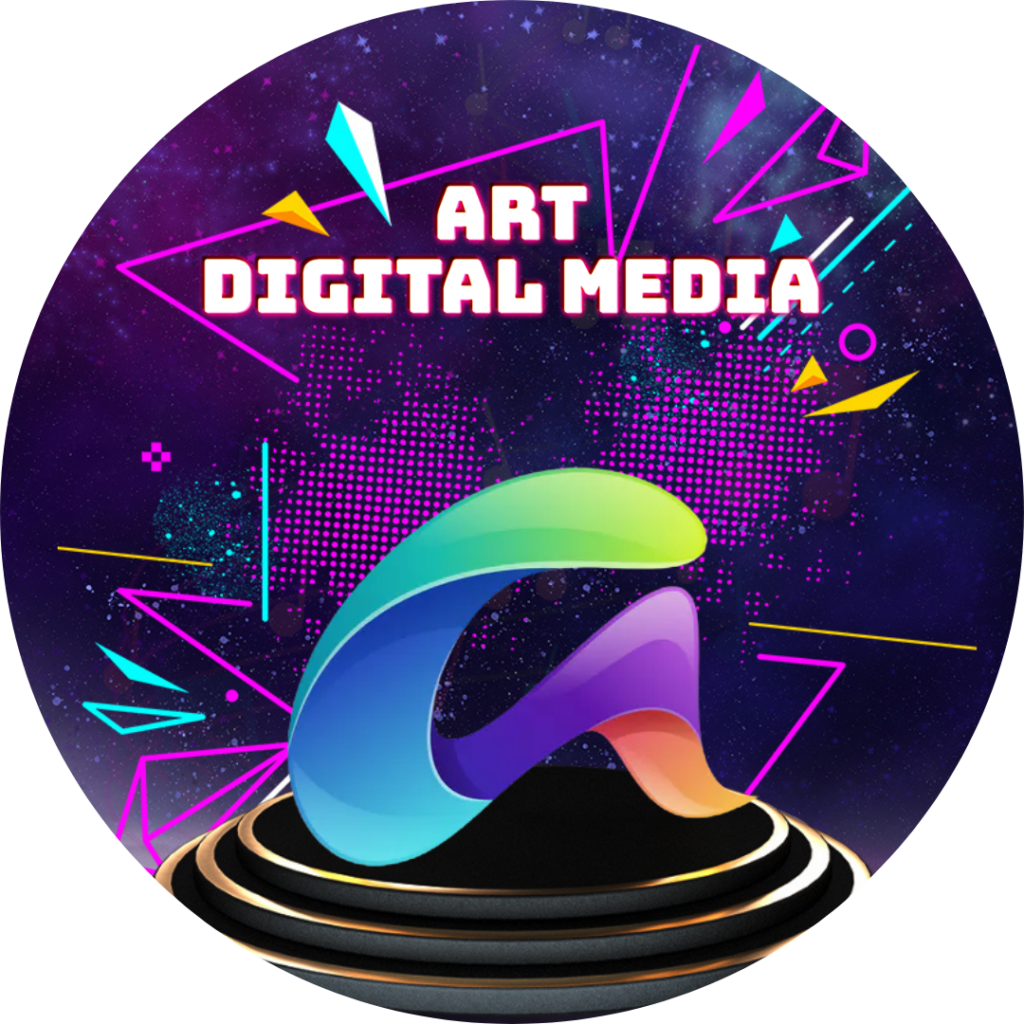Deciphering the secrets of successful digital marketing requires a strategic blend of creativity, analytics, and technology. Focus on high-impact areas like content marketing, SEO, and email campaigns. Create engaging content that builds brand awareness and drives organic traffic. Optimize your efforts using tools like Google Analytics and SEMrush. Tailor your strategies by knowing where your audience spends time online and using targeted ads. Don't forget to track performance and make data-driven adjustments for continuous improvement. By mastering these elements, you'll effectively connect with your audience, drive sales, and achieve your marketing goals. Discover how each component can amplify your success.
Key Takeaways
- Utilize data analytics to measure performance and optimize campaigns based on high-performing channels and audience preferences.
- Leverage SEO and SEM strategies to enhance website visibility and drive organic and paid traffic.
- Develop and implement targeted content marketing strategies to build brand awareness and drive organic traffic.
- Personalize and segment email marketing campaigns to improve engagement and achieve high ROI.
- Integrate multiple digital marketing channels for consistent messaging, engaging customers at various touchpoints for a seamless user journey.
What is Digital Marketing?

You need to understand what digital marketing is to grasp its full potential.
It includes various components like social media, email campaigns, and SEO that set it apart from traditional marketing.
Knowing these differences helps you create more targeted and measurable strategies.
Defining Digital Marketing
Digital marketing leverages digital channels like social media, websites, and email to effectively promote products or services to targeted audiences. By using online advertising and social media marketing, you can reach a broad yet specific target audience. This approach allows you to engage potential customers where they spend most of their time—online.
Digital marketing isn't just about broadcasting your message but also about interacting with your audience, creating a two-way communication channel. You can tailor your marketing efforts based on real-time feedback and performance data. This way, you're able to tweak your strategies to better meet the needs and preferences of your audience.
Another significant advantage of digital marketing is the ability to track and analyze campaign performance. You can measure key metrics like click-through rates, conversion rates, and return on investment (ROI). This data-driven approach helps you make informed decisions and optimize your marketing strategies for better results.
In essence, digital marketing provides a versatile and dynamic platform for businesses to connect with their audience, drive engagement, and achieve measurable success. By staying updated on industry trends and leveraging various digital tactics, you can effectively navigate the ever-evolving digital landscape.
Main Components of Digital Marketing
Understanding the main components of digital marketing is essential for crafting effective strategies that reach and convert your target audience.
First, content marketing is a cornerstone. By creating valuable, relevant content, you can attract, engage, and retain customers. This could be in the form of blog posts, videos, or social media updates. Your content should address the needs and interests of your audience, ultimately guiding them towards your products or services.
Next, website optimization is vital. Your website is often the first impression potential customers have of your brand. A well-optimized site guarantees fast loading times, mobile compatibility, and an intuitive user experience. This not only improves your search engine rankings but also keeps visitors on your site longer, increasing the chances of conversion.
How Digital Marketing Differs from Traditional Marketing
In today's fast-paced world, digital marketing harnesses online channels and data analytics to create targeted and personalized campaigns, setting it apart from traditional marketing methods.
Unlike traditional marketing, which relies on offline mediums like print ads and TV commercials, digital marketing leverages the internet to reach and engage with audiences. This approach allows you to use platforms such as social media, email, and search engines to tailor your campaigns to specific demographics and behaviors.
One of the key advantages of digital marketing is its ability to offer real-time data tracking and analysis. You can quickly adjust your strategies based on performance metrics, optimizing your campaigns for better results. Traditional marketing, on the other hand, often lacks this immediacy, making it harder to tweak campaigns on the fly.
Digital marketing is also more cost-effective and has a broader reach. With online channels, you can connect with a global audience without the hefty price tags associated with traditional marketing. This makes it an appealing choice for businesses of all sizes looking to maximize their marketing budgets.
What Are the Different Types of Digital Marketing?
In exploring the types of digital marketing, you'll encounter key strategies like content marketing, email marketing, and social media marketing. Each type offers unique benefits and can be tailored to fit your specific goals.
Let's take a closer look at how these methods can enhance your overall marketing efforts.
Content Marketing
Content marketing, a cornerstone of digital strategy, involves creating and distributing valuable content to attract and engage your target audience. Unlike traditional advertising, content marketing focuses on providing information that educates, informs, entertains, or inspires.
This approach not only builds brand awareness but also drives organic traffic to your website and establishes your brand's credibility.
To make your content marketing efforts effective, you should leverage various types of content and channels. Here are three key strategies:
- Blog Posts: Writing well-researched, informative blog posts helps in establishing your authority in your field and improving your search engine rankings.
- Videos: Creating engaging videos can capture the attention of your audience and is especially effective on social media platforms where visual content thrives.
- Infographics: These visually appealing graphics can simplify complex information, making it easier for your audience to understand and share.
Utilizing a mix of these content types ensures you reach a broader audience and keeps your digital marketing fresh and engaging.
Email Marketing
Email marketing remains a cornerstone of digital strategy, offering unparalleled ROI and versatile options like promotional emails, transactional messages, and automated drip campaigns. You can't ignore its power, with an average return of $42 for every $1 spent.
When executed well, email marketing can greatly boost engagement and drive conversions. Personalized email campaigns are particularly effective, increasing open rates by up to 26%. By tailoring messages to individual preferences and behaviors, you can establish a more meaningful connection with your audience. Personalization isn't just about using the recipient's name; it's about delivering content that speaks directly to their interests and needs.
Segmentation is another critical factor in successful email marketing. By dividing your email list based on demographics, behavior, and preferences, you can target your messages more effectively. This targeted approach ensures that your content is relevant to each segment, enhancing engagement and improving outcomes.
To maximize your email marketing efforts, focus on crafting compelling subject lines, engaging content, and clear calls-to-action. These elements will help you capture attention and drive the desired actions from your audience.
In short, effective email marketing hinges on personalization, segmentation, and strategic content creation.
Social Media Marketing
While email marketing offers impressive ROI, social media marketing provides a dynamic way to engage with audiences across platforms like Facebook, Instagram, Twitter, and LinkedIn. By leveraging these platforms, you can build brand awareness, drive website traffic, and cultivate a community around your brand.
Social media marketing encompasses various strategies, including:
- Influencer Marketing: Partner with influencers to expand your reach and tap into their loyal follower base.
- Content Creation: Develop engaging posts, stories, and videos to capture attention and foster interactions.
- Paid Advertising: Utilize ad formats like carousel ads, video ads, and sponsored posts to target specific demographics.
By incorporating these strategies, you can create a robust social media presence that resonates with your audience.
Influencer marketing, for instance, allows you to connect with potential customers through trusted voices, enhancing credibility and engagement. Meanwhile, consistent content creation keeps your audience informed and entertained, strengthening your brand's identity.
To make the most of your efforts, utilize social media analytics. These tools help you track performance, optimize campaigns, and measure ROI. By analyzing metrics such as engagement rates, click-through rates, and conversion rates, you can refine your strategy and guarantee that your social media marketing efforts are effective and results-driven.
Search Engine Marketing
Search Engine Marketing (SEM) combines paid search advertising and search engine optimization (SEO) to enhance your website's visibility on search engine results pages. SEM helps you reach your target audience by guaranteeing that your business appears prominently in search results. Paid search advertising allows you to target specific keywords and demographics, giving your website immediate visibility and driving traffic right away.
Meanwhile, SEO focuses on optimizing your website's content and structure to improve organic search engine rankings. By enhancing your site's relevance and authority, SEO helps you achieve higher positions in natural search results, which can lead to sustained traffic over time.
Here's a concise breakdown of SEM:
| Aspect | Paid Search Advertising | SEO |
|---|---|---|
| Visibility | Immediate | Gradual |
| Cost | Pay-per-click (PPC) | Investment in content and technical optimization |
| Targeting | Specific keywords and demographics | Broad audience through relevant content |
Integrating both paid search advertising and SEO within your SEM strategy ensures a balanced approach, leveraging the strengths of immediate traffic and long-term organic growth. It's a cost-effective way to increase brand awareness and generate leads, ultimately driving your business toward digital success.
Affiliate Marketing
Affiliate marketing, a performance-based strategy, lets businesses pay affiliates for driving traffic or sales through their referral links. By leveraging this approach, you can effectively boost your brand's reach and sales without upfront costs.
Let's explore the different types of affiliate marketing models:
- Pay-per-click: In this model, affiliates earn commissions for every click they drive to the merchant's site. It's a great way to generate traffic and awareness.
- Pay-per-lead: Here, affiliates are rewarded for generating leads or sign-ups for the merchant. This model focuses on capturing potential customers' information, which can be essential for future sales.
- Pay-per-sale: Affiliates receive a commission for every sale made through their referral links. This model directly ties the affiliate's earnings to the actual sales performance, making it highly effective and result-oriented.
How a Digital Marketer Works

As a digital marketer, you'll juggle various roles and responsibilities, from crafting strategies to analyzing data.
You'll need essential skills like creativity, analytical thinking, and adaptability, and you'll rely on tools and technologies to streamline your work.
Understanding how these elements come together is vital to your success.
Roles and Responsibilities
Digital marketers drive online engagement by crafting and executing strategies tailored to specific audiences. To succeed, you need to develop a robust marketing strategy that will guide your actions. This involves conducting thorough market research to understand your target audience's preferences, behaviors, and needs.
Leveraging data analytics is vital for tracking performance metrics, measuring ROI, and making informed decisions to optimize campaigns.
Your role involves juggling multiple responsibilities, including:
- Creating and managing online campaigns: You'll design and execute campaigns across various digital platforms, ensuring they resonate with your audience.
- Analyzing data: Use data analytics tools to monitor campaign performance, understand what's working and what's not, and adjust strategies accordingly.
- Collaborating with teams: Work closely with designers, developers, and content creators to bring your marketing vision to life.
Staying updated on industry trends and continuously learning new skills is essential. The digital landscape is always evolving, and you'll need to adapt to new technologies and platforms.
Essential Skills for Digital Marketers
To excel in digital marketing, you need a blend of creative flair and analytical prowess. Creativity helps you craft compelling content and innovative campaigns, while analytical skills allow you to interpret data and refine strategies.
Understanding SEO is vital—you'll optimize content to rank higher on search engines, driving organic traffic.
Equally important is knowing how social media algorithms work. Each platform has unique algorithms that determine content visibility. By mastering these, you can guarantee your posts reach the right audience at the right time.
Marketing isn't just about creativity; it's about leveraging data to enhance campaign performance.
Staying updated on industry trends and consumer behavior helps you adapt your marketing strategies effectively. Additionally, collaboration with cross-functional teams is essential. Strong communication skills ensure that everyone is on the same page, fostering a cohesive environment.
Project management abilities are also key. Managing multiple campaigns simultaneously requires meticulous planning and execution. By honing these skills, you can navigate the complexities of digital marketing, ensuring your efforts are both efficient and effective.
With the right skill set, you're well-equipped to drive successful digital marketing campaigns.
Tools and Technologies Used
Effective digital marketing hinges on leveraging a suite of powerful tools and technologies to optimize campaigns and drive results. As a digital marketer, you need to harness various platforms to streamline your processes and maximize your impact.
Analytics tools like Google Analytics are your go-to for tracking website performance and understanding user behavior. These insights help you make data-driven decisions and fine-tune your strategies.
In addition, SEO tools such as SEMrush and Moz are indispensable for keyword research and optimizing your website content to rank higher on search engines.
Social media management platforms like Hootsuite and Buffer simplify the scheduling and monitoring of your social media posts. These platforms allow you to engage with your audience consistently and measure the effectiveness of your social media campaigns.
Here's a quick rundown of essential tools you should be using:
- Google Analytics: Tracks website performance and user behavior.
- SEMrush and Moz: Helps with keyword research and SEO optimization.
- Hootsuite and Buffer: Streamlines social media scheduling and monitoring.
What Are the Benefits of Digital Marketing?
When you embrace digital marketing, you can reach a broader audience at a fraction of the cost of traditional methods.
You'll also be able to track and measure your campaigns, allowing for continuous optimization.
Plus, targeting specific demographics guarantees your efforts are more effective and engaging.
Increased Reach
Digital marketing empowers businesses to break geographical barriers and connect with a global audience effortlessly. By leveraging the internet, you can expand your reach far beyond traditional constraints. This means you can tap into new markets and attract customers from around the world, all from the comfort of your office.
With targeted advertising, you can guarantee your marketing messages reach the right audience. Digital platforms allow you to pinpoint specific demographics, interests, and behaviors, making your campaigns more effective and relevant. This precision helps in maximizing your marketing efforts by focusing on those most likely to be interested in your products or services.
Customer engagement is another critical benefit of digital marketing. Through social media, email campaigns, and other online channels, you can interact with your audience in real-time, fostering stronger relationships and building brand loyalty. Engaging content and timely interactions can make your brand more relatable and trustworthy.
- Global Reach: Break down geographical barriers and access a worldwide audience.
- Targeted Advertising: Deliver precise marketing messages to specific demographics.
- Enhanced Engagement: Foster stronger relationships with customers through real-time interactions.
Increased reach through digital marketing opens up endless possibilities for your business to grow and thrive.
Cost-Effectiveness
In addition to its expansive reach, digital marketing stands out for its cost-effectiveness, providing significant savings compared to traditional marketing methods. You can achieve more with less, thanks to the lower costs associated with digital strategies. For instance, digital marketing costs 62% less than traditional methods, making it accessible even for smaller businesses with limited budgets.
What's more, the return on investment (ROI) is significantly higher in digital marketing. For example, businesses generate $2.80 for every dollar spent on Google Ads. Email marketing is another cost-effective strategy, boasting an impressive ROI of 4400%. These figures highlight how efficient digital marketing can be in driving conversions and increasing revenue.
Social media marketing is another area where you can reap substantial benefits at a fraction of the cost of traditional advertising methods. By leveraging platforms like Facebook, Instagram, and LinkedIn, you can reach a broad audience without breaking the bank.
| Strategy | ROI |
|---|---|
| Google Ads | $2.80 per $1 spent |
| Email Marketing | 4400% |
| Social Media Marketing | Broad Audience |
Measurable Results
Analytics tools like Google Analytics let you measure website performance and customer behavior, offering invaluable insights for your digital marketing campaigns. These tools help you track key performance indicators (KPIs) such as conversion rates and engagement metrics, giving you a clear picture of how well your strategies are working.
One of the main benefits of digital marketing is its measurable results. By leveraging analytics, you can make data-driven decisions that optimize your campaigns and allocate resources effectively. This approach guarantees you're putting your budget into the tactics that provide the best return on investment (ROI).
Consider these advantages:
- Real-time adjustments: Quickly identify underperforming elements and tweak them for better results.
- Identify high-performing channels: Know which platforms drive the most traffic and conversions, so you can focus your efforts where they matter.
- In-depth customer insights: Understand your audience's behavior, preferences, and engagement metrics to tailor your content and strategies accordingly.
Using analytics to track and measure your digital marketing efforts allows you to continuously improve and stay aligned with your goals. This data-centric approach not only enhances your campaign's effectiveness but also ensures you're always adapting to the ever-changing digital landscape.
How to Get Started with Digital Marketing?

To get started with digital marketing, first build a solid marketing plan that outlines your goals and strategies.
Next, choose the right marketing channels that best reach your target audience.
Building a Digital Marketing Plan
Crafting a digital marketing plan starts with setting clear, measurable objectives that align with your overall business goals. You'll want to begin by defining what success looks like for your digital marketing efforts. Are you aiming to increase website traffic, boost sales, or enhance brand awareness?
Once your objectives are set, it's time to immerse yourself in market research. Understanding your target audience and analyzing competitors can provide valuable insights into what strategies will work best.
To make your digital marketing plan robust, consider these essential steps:
- Define your target audience: Know who you're trying to reach. Create detailed buyer personas to understand their needs, preferences, and online behavior.
- Identify performance metrics: Determine which key performance indicators (KPIs) will help you measure your success. Metrics like conversion rates, click-through rates, and social media engagement are crucial.
- Conduct a SWOT analysis: Assess your strengths, weaknesses, opportunities, and threats to identify areas where you can excel and where you need improvement.
Choosing the Right Marketing Channels
Selecting the right marketing channels starts with knowing exactly where your target audience spends their time online. You need to take into account factors like demographics, behavior, and preferences.
For instance, younger audiences might be more active on social media platforms like Instagram and TikTok, while professionals could be found on LinkedIn. Understanding these patterns guarantees your marketing efforts reach the right people.
Utilizing data analytics is essential in this process. By analyzing data from previous campaigns, website traffic, and social media interactions, you can identify which marketing channels yield the highest engagement and conversion rates. Data-driven decisions help you allocate your resources effectively, avoiding wasted efforts on channels that don't resonate with your target audience.
Experimentation is another key aspect. Don't be afraid to test various marketing channels to see what works best for your specific business. Track the performance and adjust your strategy accordingly. Over time, you'll discover which channels consistently deliver the best results.
Executing Your First Digital Marketing Campaign
Starting your first digital marketing campaign involves clearly defining your goals, understanding your target audience, and setting a realistic budget to guide your efforts. Begin by identifying what you want to achieve—whether it's brand awareness, lead generation, or sales. Once your goals are set, research your target audience to understand their preferences, behaviors, and pain points. This knowledge will help you tailor your strategies effectively.
Next, select the right digital marketing channels. Consider where your audience spends their time online. Are they active on social media, or do they prefer email newsletters? Your choices might include:
- Social Media: Platforms like Facebook, Instagram, or LinkedIn, depending on your audience.
- SEO and PPC: Optimize your website for search engines and run pay-per-click campaigns to drive traffic.
- Email Marketing: Build a list and send personalized content to nurture leads.
Creating engaging content is essential. Your content should resonate with your audience and drive engagement.
Regularly monitor the performance of your campaign using key metrics. Use these insights to make data-driven optimizations, ensuring you're always improving and adapting to achieve better results.
How Do Various Digital Marketing Channels Work?
To understand how digital marketing channels operate, you'll need to explore the roles of social media platforms, email marketing campaigns, and SEO.
Social media helps you engage with your audience through posts and ads, while email marketing allows for personalized communication.
SEO guarantees that your website ranks well on search engines, driving organic traffic.
Social Media Platforms
Harnessing the power of social media platforms like Facebook, Instagram, and LinkedIn allows businesses to connect with diverse audiences and tailor their marketing strategies for maximum impact. Social media marketing is essential for reaching your target audience, driving engagement, and crafting a compelling strategy that leverages each platform's unique features.
By understanding how these platforms work, you can create content that resonates and engages your audience effectively.
Each social media platform has its own algorithms and best practices. Facebook's robust advertising tools let you target specific demographics, interests, and behaviors. Instagram, with its visual focus, is perfect for brands that can create eye-catching imagery and videos. LinkedIn, on the other hand, is ideal for B2B marketing, connecting with professionals, and showcasing industry expertise.
To make the most of your social media marketing efforts:
- Tailor your content: Customize your posts to fit the platform and audience.
- Engage with followers: Respond to comments, share user-generated content, and collaborate with influencers.
- Leverage analytics: Track performance metrics and adjust your strategy based on the data.
Email Marketing Campaigns
Email marketing campaigns can greatly enhance your digital marketing efforts by delivering personalized and targeted content directly to your audience's inbox. This approach not only engages your audience but also drives impressive results. Personalized content is vital, as tailored emails deliver six times higher transaction rates. When you understand your audience's preferences and behaviors, you can craft messages that resonate, leading to increased engagement and sales.
Automated campaigns further amplify the effectiveness of your email marketing. By setting up automated sequences, you can guarantee timely and relevant communication with your subscribers. These campaigns boast a 70.5% higher open rate and a 152% higher click-through rate compared to traditional emails, proving their efficacy. Plus, segmentation plays an important role. By dividing your email list into specific segments based on demographics, behaviors, or purchase history, you can create highly targeted campaigns. This strategy drives a remarkable 760% increase in revenue.
Email marketing remains a preferred communication channel for 72% of consumers, making it an essential component of your digital marketing strategy. With an average ROI of 4200%, investing in personalized and automated email campaigns can greatly boost your marketing success.
SEO and SEM
SEO and SEM are essential components of digital marketing that collaborate to enhance your website's visibility and traffic on search engines. Search engine optimization (SEO) focuses on organic strategies to improve your site's ranking on search engine results pages. By optimizing your website content, meta tags, and backlinks, you can greatly enhance your search engine visibility. This process takes time but delivers long-term benefits by attracting consistent, high-quality traffic.
Search engine marketing (SEM), on the other hand, involves paid advertising to increase website traffic. Using platforms like Google Ads, SEM targets specific keywords to drive immediate traffic to your site. It's an effective way to get quick results and test various strategies to see what works best for your audience.
Incorporating both SEO and SEM into your digital marketing strategy is vital for maximizing online visibility and reach. Here are some key points to keep in mind:
- SEO focuses on optimizing website content and building backlinks for long-term visibility.
- SEM uses paid advertising to target keywords and achieve immediate traffic boosts.
- Combining SEO and SEM provides a balanced approach, ensuring both quick wins and sustainable growth.
What Are Effective Digital Marketing Strategies?

To craft effective digital marketing strategies, you'll need to focus on developing successful content, integrating multiple channels, and continuously analyzing and optimizing your campaigns.
By aligning your content with audience needs, leveraging various platforms, and refining tactics based on data, you can maximize your marketing impact.
These approaches will help you stay competitive and drive meaningful results.
Successful Content Strategies
Harnessing the power of well-crafted content strategies can greatly enhance your digital marketing efforts, driving higher engagement and lead generation. Content marketing isn't just about creating content but creating value. Effective content can position you as a thought leader in your industry and build trust with your audience.
Here's how you can leverage content marketing to boost your digital presence:
- Blog Regularly: Companies with active blogs receive 97% more leads. By consistently publishing valuable, relevant articles, you can attract and nurture potential clients.
- Utilize Video Content: Videos on landing pages can increase conversion rates by 86%. Video content is highly engaging and can effectively communicate your message in a short amount of time.
- Focus on Quality over Quantity: It's better to produce fewer pieces of high-quality content than to flood your channels with mediocre material. High-quality content increases engagement and helps in building a loyal audience.
Integrating Multiple Channels
When you integrate multiple digital marketing channels, you significantly enhance your brand's visibility and engagement. Combining SEO, social media, email marketing, and PPC ensures you reach a wider audience and drive more traffic to your site. Leveraging these channels together provides a consistent message and optimized user experience, which is vital for converting visitors into loyal customers.
In the domain of online shopping, integrating multiple channels allows you to engage with customers at various touchpoints, from discovery through purchase. For instance, a potential customer might first discover your product through a social media ad, read reviews via SEO-optimized blog posts, and finally receive an email reminder about an abandoned cart. This cohesive journey makes the purchase process smoother and more engaging.
Using a data-driven approach is key to tracking and measuring performance across different channels. Analyzing data helps you understand which channels are most effective, where you should allocate more resources, and how to refine your strategies for better results. By focusing on data, you can make informed decisions that enhance your marketing efforts and ensure you're meeting your customers' needs effectively.
Analyzing and Optimizing Campaigns
Maximizing the impact of your integrated multi-channel strategy involves consistently analyzing and optimizing your campaigns for better performance. In digital marketing, a keen eye on results is essential. Start by leveraging A/B testing to compare different variations of your campaigns. This method allows you to pinpoint what resonates best with your audience.
Implementing robust analytics tools like Google Analytics is vital for gaining insights. These tools provide valuable data on user behavior, helping you make data-driven decisions. By tracking metrics like click-through rates, conversion rates, and bounce rates, you can identify areas for improvement and adjust your strategy accordingly.
To keep your digital marketing campaigns on track, consider these key tactics:
- A/B testing: Experiment with different headlines, images, and calls-to-action to see which versions perform best.
- Analytics tools: Use platforms like Google Analytics to monitor performance and gather actionable insights.
- Engaging CTAs: Craft clear and compelling calls-to-action with urgency and incentives to boost effectiveness.
Don't forget, optimizing your campaigns isn't a one-time task. Continuously monitor your results, test new ideas, and refine your strategies. This iterative approach ensures your digital marketing efforts remain impactful and relevant in a competitive landscape.
Conclusion
Get started right away and watch your campaigns thrive! Did you know that 93% of online experiences begin with a search engine?
Embrace strategic leadership, nurture innovation, and keep your team engaged. Stay updated on industry trends and foster a culture of creativity.
Adapt and improve constantly to stay competitive. By doing so, you'll transform your digital marketing efforts and achieve remarkable results.
Begin now and witness your campaigns flourish!
